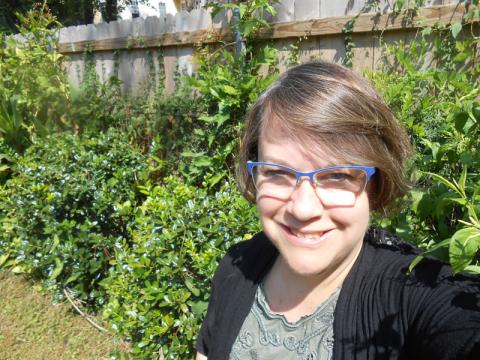Janet B. Ruscher, Ph.D.
Professor

Education & Affiliations
Biography
Dr. Ruscher's social cognition research focuses primarily on stereotyping and prejudice in communication and language. Current work considers the role of metaphors in perception of disparaged outgroups, as well as perceptions of hate speech.
Office
3049 Percival Stern Hall
Selected Publications
Ruscher, J. B. (in press). Partisans’ noncomplex impressions of a candidate who wore a racially insensitive costume. Journal of Language and Social Psychology.
Airington, Z., Woods, F. A., & Ruscher, J. B. (2025). Who hails the unsung heroes? Individual differences in heroizing essential workers during a viral outbreak. Personality and Individual Differences, 236. DOI: 10.1016/j.paid.2024.113027
Ruscher, J. B. (2025). Hate speech. Cambridge University Press. Cambridge, UK. Online DOI: 10.1017/9781009534666 Print version: ISBN 9 781009 534673]
Woods, F. A., & Ruscher, J. B. (2024). What’s in a name…and for whom?: How public spaces named for prejudiced individuals impact targets of prejudice. Group Processes and Intergroup Relations, 27, 663-688. DOI: 10.1177/1368302231184371
Merritt, S. K., O’Brien, L. T., & Ruscher, J. B. (2021). Creating clever internet memes perpetuates offensiveness. Western Journal of Communication, 85, 471-486. DOI: 10.1080/10570314.2020.1800812
Van Bommel, T., Merritt, S. K., Shaffer, E. & Ruscher, J. B. (2021). Behavioral mimicry and interaction expectations impact affect in interracial interactions. Journal of Nonverbal Behavior, 45, 207-239. DOI: 10.1007/s10919-020-00353-z.
Woods, F., & Ruscher, J. B. (2021). Viral sticks, virtual stones: addressing anonymous hate speech online, Patterns of Prejudice, 55, 265-289. DOI: 10.1080/0031322X.2021.1968586
Woods, F. A., & Ruscher, J. B. (2021). ‘Calling-out’ vs. “calling-in” prejudice: Confrontation style affects inferred motive and expected outcomes. British Journal of Social Psychology, 60, 50-73. DOI: 10.1111/bjso.12405
Tipler, C. N., & Ruscher, J. B. (2019). Dehumanizing representations of women: The shaping of hostile sexist attitudes through animalistic metaphors. Journal of Gender Studies. 28, 109-118. DOI: 10.1080/09589236.2017.1411790
Ruscher, J. B., & Tipler, C. N. (2018). Linguistic intergroup bias about the 2016 U.S. presidential candidates as a function of political ideology. Analyses of Social Issues and Public Policy, 18, 61-80. DOI: 10.1111/asap.12149
Ruscher, J. B. (2017). Adult attachment predicts advice, exemplar sharing, and questions to acquaintances recently diagnosed with cancer. Journal of Language and Social Psychology, 36, 484-493. DOI: 10.1177/0261927X16667435
Ruscher, J. B. (2017). Expectations about re-entering the weekly cycle following disruption by familial death or holiday. Time & Society, 26, 321-338. DOI: 10.1177/0961463X15577284
Boasso, A., Overstreet, S., & Ruscher, J. B. (2015). Community disasters and shared trauma: Potential implications of listening to a co-survivor narrative. Journal of Loss and Trauma, 20, 397-409 DOI: 10.1080/15325024.2014.912055
Van Bommel, T., Sheehy, A., & Ruscher, J. B. (2015). The role of attachment style in women's recognition of sexism. Personality and Individual Differences, 74, 235-240.
Tipler, C. N., & Ruscher, J. B. (2014). Agency’s role in dehumanization: Non-human metaphors of outgroups. Social and Personality Psychology Compass, 8, 214-228.
Ruscher, J. B. (2012). Describing grief under cyclical versus linear conceptions of time. Journal of Language and Social Psychology, 31, 533-546
Ruscher, J. B. (2011). Moving forward: The effect of spatial metaphors on perceptions about grief . Social Psychology, 42, 225-230. [Special issue: Spatial Constraints on Social Cognition]
Bradley-Geist, J. C., & Ruscher, J. B. (2011). Showcasing and subjugating minorities and women: Assignment to visible but trivial committees. Journal of Psychological Issues in Organizational Culture, 2, 5-18.
Ruscher, J. B., Wallace, D., Walker, K. M., & Bell, L. H. (2010). Constructive feedback in cross-race interaction. Group Processes and Intergroup Relations, 13, 603-619.
Kaplan, S. A., Santuzzi, A. M. & Ruscher, J. B. (2009). Elaborative meta-perceptions in outcome-dependent situations: The diluted relationship between default self-perceptions and meta-perceptions. Social Cognition, 27, 602-615
Ruscher, J. B., Cralley, E. L., & O'Farrell, K. J. (2005). How newly acquainted dyads develop shared stereotypic impressions of others through conversation. Group Processes and Intergroup Relations, 8, 259-270.
Ruscher, J. B. (2001). Prejudiced communication: A social psychological perspective. New York: Guilford Press.
